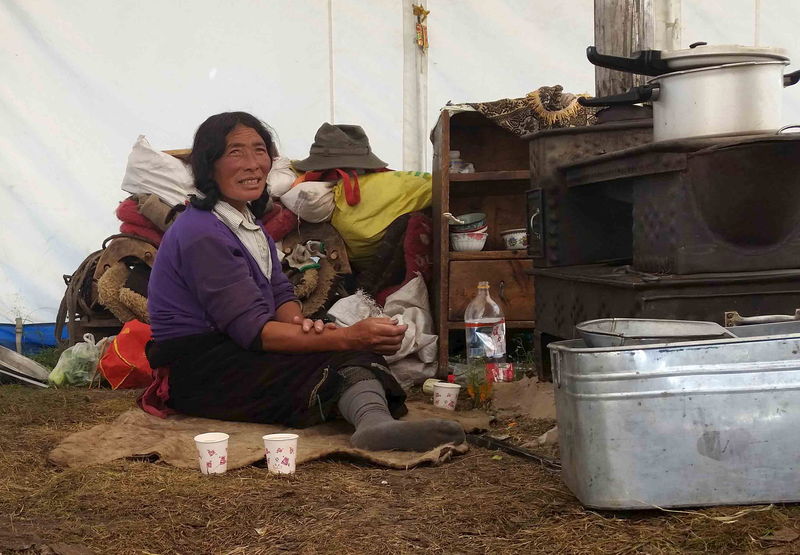By Natalie Thomas
NGABA, China (Reuters) - Nineteen-year-old Longsel Tsondre sees nothing romantic about the itinerant life his Tibetan herder family left behind when the government in his remote corner of southwestern China offered to resettle them a few years ago.
"It was pretty tough out there. There was no development and we were quite poor," he told reporters on a rare government-organized trip to Ngaba, a heavily Tibetan part of Sichuan province traditionally strongly defiant of Chinese rule.
"Now it's better. We don't go to the mountains to herd the yaks and horses. Now we dance every day," he said, after performing a Tibetan dance for a bus-load of Chinese tourists.
It's a positive image China wants the world to see, one aspect of a controversial program to resettle into permanent homes Tibetan herders who have wandered these parts for centuries.
China has ruled Tibet with an iron fist since troops took over the region in 1950, and those controls often extend to ethnic Tibetan areas in other parts of China.
The government rejects criticism that it has repressed Tibetan religious freedom and culture, saying its rule has ended serfdom and brought development to a backward region.
The government says resettlement gives herders access to health care and schooling and lets them benefit from China's booming economy by offering new job opportunities, like working in tourism.
Ngaba, known as Aba in Chinese, erupted in a wave of anti-China self-immolation protests in 2011, becoming one of the most serious challenges against Chinese rule in years.
While not officially off limits to foreign reporters, unlike what China calls the Tibet Autonomous Region, where all reporting trips need government permission, visits are very difficult due to tight security.
Late last week, the government took a small group of foreign journalists to Ngaba, arranging interviews with officials and resettled herders, though all in the presence of government minders.
"SUCH NICE HOUSES"
None of the herders spoke out against the resettlement program during interviews with reporters. Shuke Sonam, 27, whose family now runs a guest house, said Tibetans living in tents previously would often be soaked by rain.
"Now we have such nice houses, and because we're taking in guests from other places, it's improved our awareness about life," she said.
Bai Yingchun, deputy head of the Ngaba prefecture's propaganda office, said "absolutely nothing was forced" in the resettlement program.
"The lives of the herders in the Tibetan areas are very free. It's not like what the outside world says," he said. "They don't have any restrictions at all."
Activists have expressed concern that China's main aim with such programs is to control a restive population, and that Tibetans have been given little option but to cooperate.
"It's much easier to enforce administrative control over settled communities than over nomads in the grasslands, and also the Chinese authorities have aligned the policy with specific political objectives of eliminating separatism and eliminating expressions of Tibetan nationalism," said Kate Saunders, spokeswoman for the International Campaign for Tibet.
Officials stuck to the government line in criticizing the exiled Tibetan Buddhist leader, the Dalai Lama, whom China regards as a dangerous separatist. The Dalai Lama denies espousing violence and says he only wants genuine autonomy for Tibet.
Chen Weide, deputy head of the Sichuan external publicity office, said Tibetans were allowed to freely practise their religion. But when asked about the Dalai Lama, he said: "He wants to split up China, that's not allowed.
"You can have religious beliefs and that's fine but the Dalai Lama does not represent religion."
Robbie Barnett, director of modern Tibet studies at Columbia University, said it was misguided policies like banning worship of the Dalai Lama which negated any support the government may get from improving services like education for Tibetans.

"It does seem in a general way that the (Communist) Party has put support of Tibetans from all social areas in jeopardy with the number of policies that have been seen as remarkably culturally insensitive."
(Additional reporting and writing by Sui-Lee Wee; Editing by Ben Blanchard and Nick Macfie)